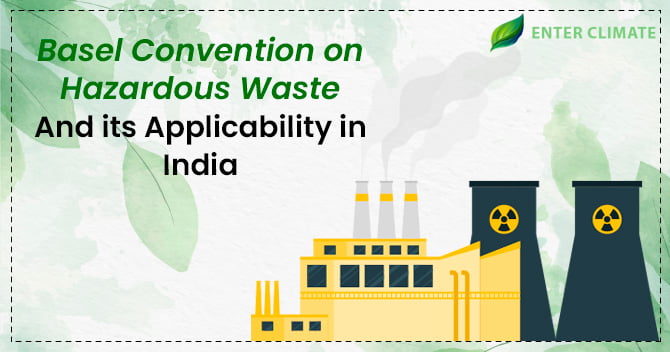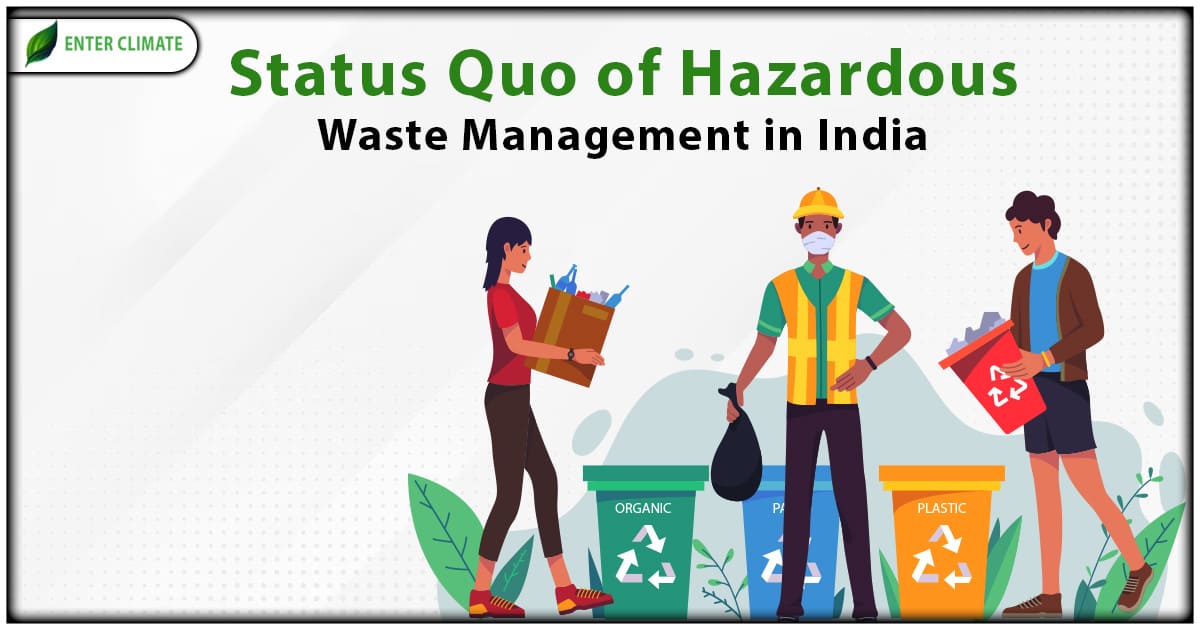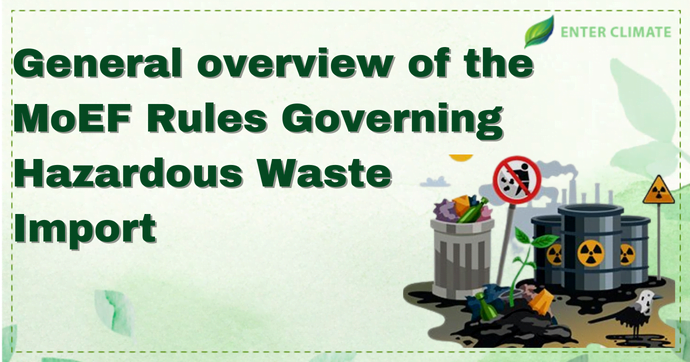Basel Convention on Hazardous Waste and its Applicability in India: an Overview
 22 Jul, 2022
22 Jul, 2022 
India became a signatory to Basel Convention on Hazardous Waste in 1992. It amended its existing regulations in 2000 and 2003 to properly align its national laws with the Basel Convention on Hazardous Waste. In India, The Hazardous Waste Rules came into effect in 2008, with subsequent amendments in 2009 and 2010. Then we saw the Hazardous and Other Wastes (Management and Transboundary Movement) Rules, 2016, a revised version of the 2008 rules which included other wastes such as scrap tyres, paper waste, metal scrap, used electronic items etc. under the regulatory framework. International conventions like the Basel Convention on Hazardous Waste are treaties or agreements among countries to reduce the movement of hazardous waste globally. Basel Convention on Hazardous Waste, which came into force in 1992, was a similar effort instituted to protect human health and the environment against the adverse effects of hazardous wastes. The scope of its application covered a wide range of hazardous wastes based on their origin and characteristics, including other wastes (i.e. household waste and incinerator ash). In India, hazardous waste has been defined in Hazardous and Other Wastes (Management & Transboundary Movement) Rules, 2016 as “any waste that, because of characteristics such as physical, chemical, biological, reactive, toxic, flammable, explosive or corrosive, causes danger to health or environment, whether alone or in contact with other wastes or substances or is likely to cause such danger”. The Rule has been amended many times in the recent past to widen its scope and align it with international protocols while giving due consideration to specific issues and concerns for waste management needed in India.
Need for Basel Convention in India
Growing environmental awareness in the country and corresponding tightening of environmental regulations by the authorities in the last decade has shown that India will not allow itself to be a dump yard for global waste. In March 2019, India amended the rules to completely prohibit the import of solid plastic waste into the country including SEZs and Export Oriented Units (EOU[1]). However, we still do not have a national ban on the import of hazardous wastes. India has not ratified the Basel Ban Amendment, which can be critical in the context of global waste trade.
One hundred eighty-eight countries are party to the Basel Convention on Hazardous Waste. The primary objective of this Convention has been to promote shared responsibility and cooperative efforts among parties in the international trade of certain hazardous chemicals to protect human health and the environment from any potential harm. The Basel Convention on Hazardous Waste aims to promote waste management by implementing measures to implement environmentally sound practices, facilitate information exchange on waste characteristics and help nations decide on their import and export management by disseminating such decisions to the parties.
India’s stand concerning Basel Convention.
The HWM Rules, 2016 adopted a definition similar to the definition of ‘hazardous waste’ under the Basel Convention. While India has been a party to the Basel Convention since 1992 and was the first country in the Global South to ratify the Basel Convention on Hazardous Waste, it is yet to sign the Basel Ban Amendment that bans the export of hazardous waste from rich countries to developing countries. The Basel Ban Amendment came into force in 2019, and more than 70 parties have ratified it.
The Secretariat of the Basel, Rotterdam, and Stockholm Conventions, or BRS Secretariat, supports the member parties in implementing the three leading multilateral environment agreements that govern chemicals and waste management worldwide. In 2019, India participated in a joint meeting of the BRS convention where two critical issues were discussed and decided i.e.
- A draft for Technical guidelines on e-waste was discussed in which used electrical and electronic equipment which are destined for direct reuse, repair, refurbishment, or failure analysis could be considered a non-waste was discussed. India strongly objected to this proposal because it has witnessed the problem of importing e-waste in the name of working EEE.
- The second issue was the inclusion of plastic waste in the PIC procedure. The discussion was related to amending the convention to include unsorted, mixed and contaminated plastic waste under PIC (Prior Informed Consent) procedure and improving the regulation of its transboundary movement. This meeting also led to the adoption of a Partnership on Plastic that was supported by India.
COP 15 to Basel Convention will take place in July 2022 in Geneva, and India will be a crucial party to this convention.
Conclusion
Entrepreneurs and Businessmen in any sector like to keep themselves updated with the changes in rules and legislation affecting their line of business. It keeps them ahead in the game and implements strategies in advance of law or rule coming into force. A country’s stand on international platforms and conventions can be an indicator in this regard. When India attends a convention, the whole world watches. India is generally at the forefront of any environment-related platforms. Many recent initiatives by the government in waste management and curbing pollution in the country can draw a close association with India’s stand at international conventions and forums. For instance, the recently notified Plastic Waste Management (Amendment) Rules 2021, which bans single-use plastic, can be linked to the Government resolution at the 4th United Nations Environment Assembly in 2019. International efforts like the Basel Convention on Hazardous Waste are more likely to help the affected developing countries prevent the illegal dumping of hazardous chemical and plastic wastes. Moreover, other wastes generated as chemical waste that, although not covered under any of the Rules above, may require specific disposal mechanisms owing to their specific characteristics. Formulating an effective mechanism for returning waste to the country of origin in case of illegal dumping and updating the list of hazardous waste substances must also be given importance.
Read our Article:Single-Use Plastic Ban in India – Meaning and Implications













